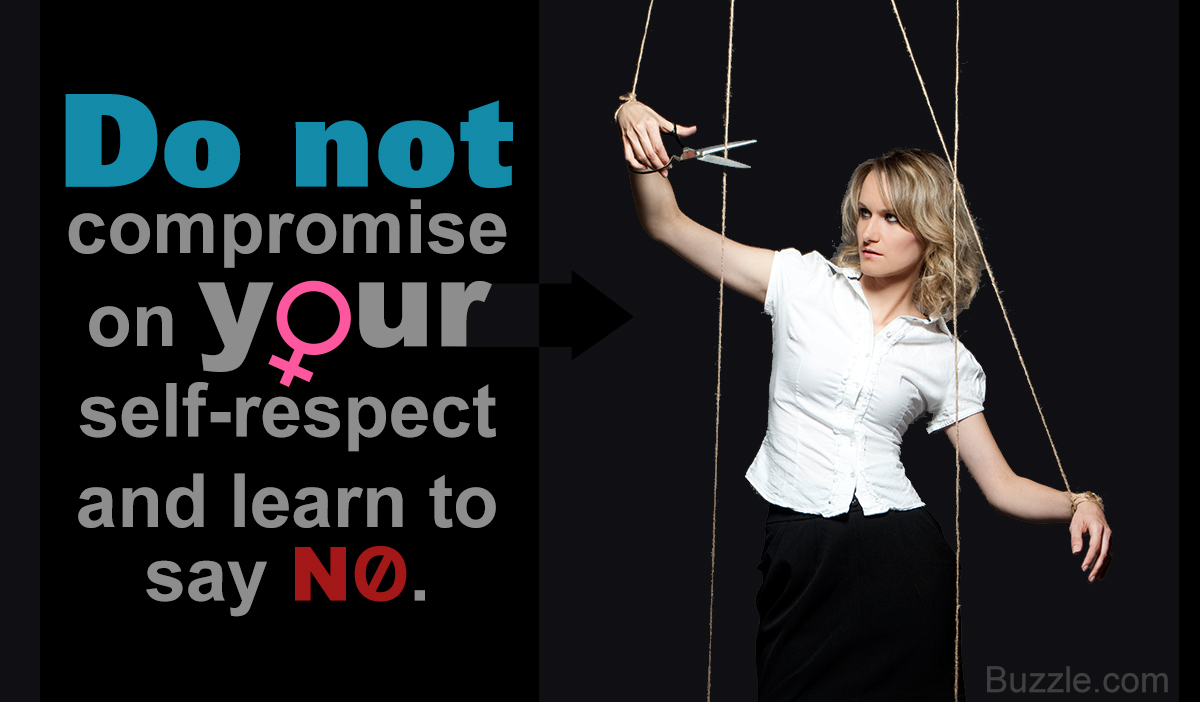
If you are a soft-spoken, people-pleasing person who is gullible to other people’s sob stories, and are forever burdened with your work as well as others’ work, chances are that you are being taken for granted.
There comes a time when you have to stop crossing oceans for people who wouldn’t even jump a puddle for you.
― Anonymous
What starts as a simple favor or an act of love and kindness, often becomes overwhelming and almost obligatory. The act further escalates to a regular habit for both you as well as for those who take you for granted.
You might even be negotiating with yourself and consoling yourself with lies that you feel loved when they can lean on you, you feel needed―they need you, or at least they talk to you for all that you do for them.
If these are the questions that you’ve had with yourself time and again, the following article is meant for you. It will tell you how to figure out if someone is taking you for granted, what to do when it happens, and how to make someone stop taking you for granted.
How to Tell if Someone is Taking You for Granted
We often live in denial when it comes to our loved ones, especially when in the heart of hearts, you know that they are wrong. We often choose to run away rather than facing the harsh truths about how they are treating you.
• You have always been there in everyone’s hour of need, but when you needed help, everyone is always busy.
• People around you know how to take a favor, but never return it.
• You have always been everyone’s crying shoulder. But no one is ever there for you.
• You are remembered only in the times of their needs, but not while rejoicing.
• You don’t even get a thanks.
• More is expected of you, no matter how much you help and pour your life and soul into it.
• You feel ignored, unloved, unappreciated, and neglected.
• If you ever fail to help your family/friends/colleagues, it is taken as a personal offense.
• They don’t care about all you’ve been through to help them as long as you get them the desired results.
What to Do When You are Being Taken for Granted
Calmly Talk to Them
Calm down and try to get a logical explanation out of those who you believe have been taking you for granted. Don’t get angry or personal. Talk to them lovingly and explain to them about all that has been happening, and that you are valued lightly. Do not start or get into any blame game. This can ruin things that could have otherwise been resolved calmly. Talk with an ‘I’, viz., use phrases such as ‘I believe’, ‘I want’, ‘I don’t want’ etc. This will help you later.
Respect Yourself
Stop being so nice all the time. All this while, you were trying to please and keep all the wrong people in your life. You have wasted your time and energy, and have let go of wonderful experiences and people who would have valued you more.
Realize one thing, you are a human with emotions and are allowed to feel what you feel. You need to let the world around you know that you are not a doormat to be used and forgotten, and most importantly, that you need to be respected. When you begin talking with ‘I’, it gives you a little more self-confidence, while giving you a prominence and importance in the conversation.
Say No
Putting your foot down and saying no will break the dependency habit, thus making it the most important step as well as difficult for you. Say NO and mean it. Don’t just say no and do it anyway. You don’t need to be a ‘yes man’ all the time. If something is expected out of you which is inconvenient to you, or/and is not your concern, say no. And if you find yourself falling into old habits, remind yourself, “It’s okay to say no.”
Saying no is new for you and them, so begin saying no to small things. Doing so will work on two levels for both of you. You begin to say no and learn to respect yourself. While they begin to accept receiving ‘no’ for an answer while teaching them some boundaries.
Actions Have Consequences
You need not feel guilty while refusing to help someone who fails to appreciate you; you are helping yourself and there is nothing wrong with that. If people leave you over a trivial no, they were probably using you anyway. You will find someone better who will not use you like an object and respect you for what you are.
Believe in the motto, do unto others as you would have them do unto you. Meaning, behave the way you would like others to behave with you. This will help you to respect yourself, while respecting others.
Be Strong
Till now was the easy part. Staying strong, now that is tough. Stick to your guns and say no, and mean it. Start off slow and build upon the habit. Every time you are presented with something that you do not want to do, is inconvenient for you, or hurts your self-respect in any way, or you simply don’t want to do it―throw your hands up!
If you believe something can be done by the person himself/herself but is relying on you, refuse it. It might come as a surprise for them, but it is okay. They will learn and so will you. Learn to put yourself first before others.
How to Make Someone Stop Taking You for Granted
This is tough love; realize this, you have taken yourself for granted, and hence, so does everyone. You need to dust off the past, and begin right now.
Believe in Yourself
You might find some important people distancing themselves from you. This is mostly because you stopped doing everything for them. You are breaking your bad habit, and if it means someone leaves, but in return, you will gain self-respect and confidence, then so be it!
Take Counseling
If your disease to please continues, seek help, be it from a true friend, family, or therapist. Give yourself first preference. People may come and go, no matter who they are, but you are your best friend, so stop abusing and start respecting yourself. You might not matter to people, but you should matter to yourself. If you don’t respect yourself, how can you expect it from others?
Everything is Not Personal
A big part of your ‘yes man’ behavior is the need to be in the good books of others. Okay, let’s play along with this little thought. You want to be in their good books, but you are falling into the doormat category as well. Now is that where you want to be?
Just because someone wants something out of you, doesn’t always mean you need to provide it to them. It also doesn’t mean that you don’t have needs either. Tell them your priority and that their wants fall far lower than your immediate needs. Do not fall into emotional blackmail, pressure, or encourage manipulative talks. Stick to your guns and simply decline. Remind yourself that it is not your job or responsibility to fix them or their problems.
Set Boundaries
This is a matter of practice. Setting boundaries will teach you and them where the line is drawn and what is expected over and above it. No matter how much they try to push your buttons in having their way, hold on to your guns and say no. If things get too much for you to handle, do not cave in; simply get up and leave the location for a while. This gives you and the other person some space to calm down.
Worst-case scenario―remind them that they are overstepping their boundaries.
Talk to the Offender
Have a one-on-one conversation with the person who is repeatedly being pushy and manipulating you into doing what they want you to do.
Kate:
Read the following example to understand better.
Kate: Sam hi! I wanted to talk to you for a bit.
Sam: Yeah, tell me!
Kate: You asked me to babysit your children yesterday. I’ve done that far too many times this month itself. I have some errands to run and my own family to attend to. So babysitting won’t be possible.
Sam: But you said you would!
Kate: No, I don’t remember saying any such thing. You told me to babysit for you and I did, and besides, I have my own life too, you know.
Sam: But I thought we were best friends!
Kate: We are – but I am not your nanny or on-call babysitter. I don’t mind occasional babysitting for you, but not all the time, and definitely not out of the blue like this. I hope you understand. See ya.
Be Consistent
Don’t say no to one and say yes to another―that sends a bad message across. At the same time, don’t just say no and then cave in. People who are dependent on you are used to you saying ‘yes’ and doing everything for them. They will do their best and play with your emotions. Do not fall prey to that. Remind them of the boundaries and that they are overstepping them.
You might feel awkward and guilty the first few times you refuse to aid someone. But it will get easier, and you will begin to feel free―free from guilt and obligation. Don’t worry, they will learn to respect you and your boundaries, and so will you.











